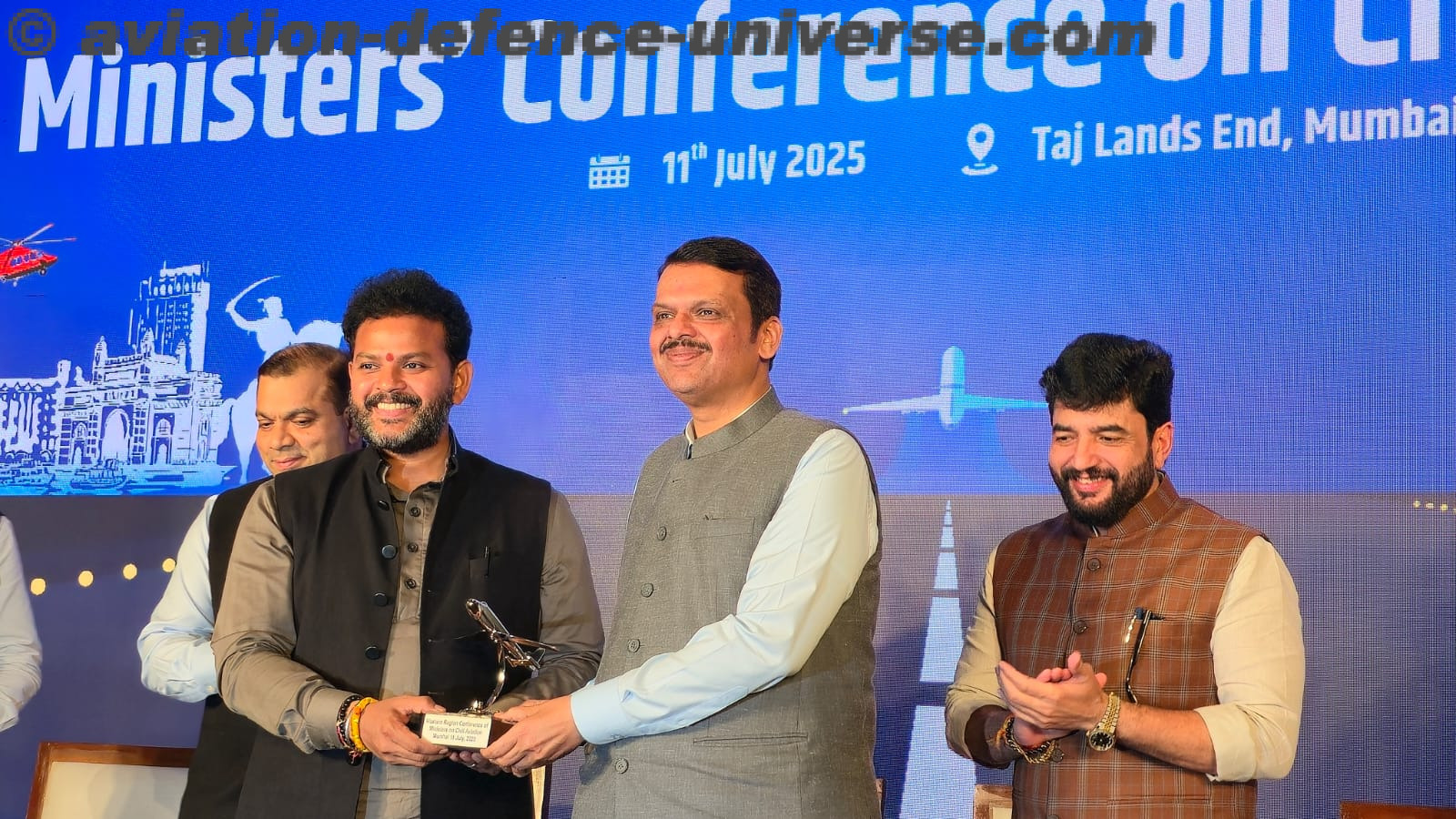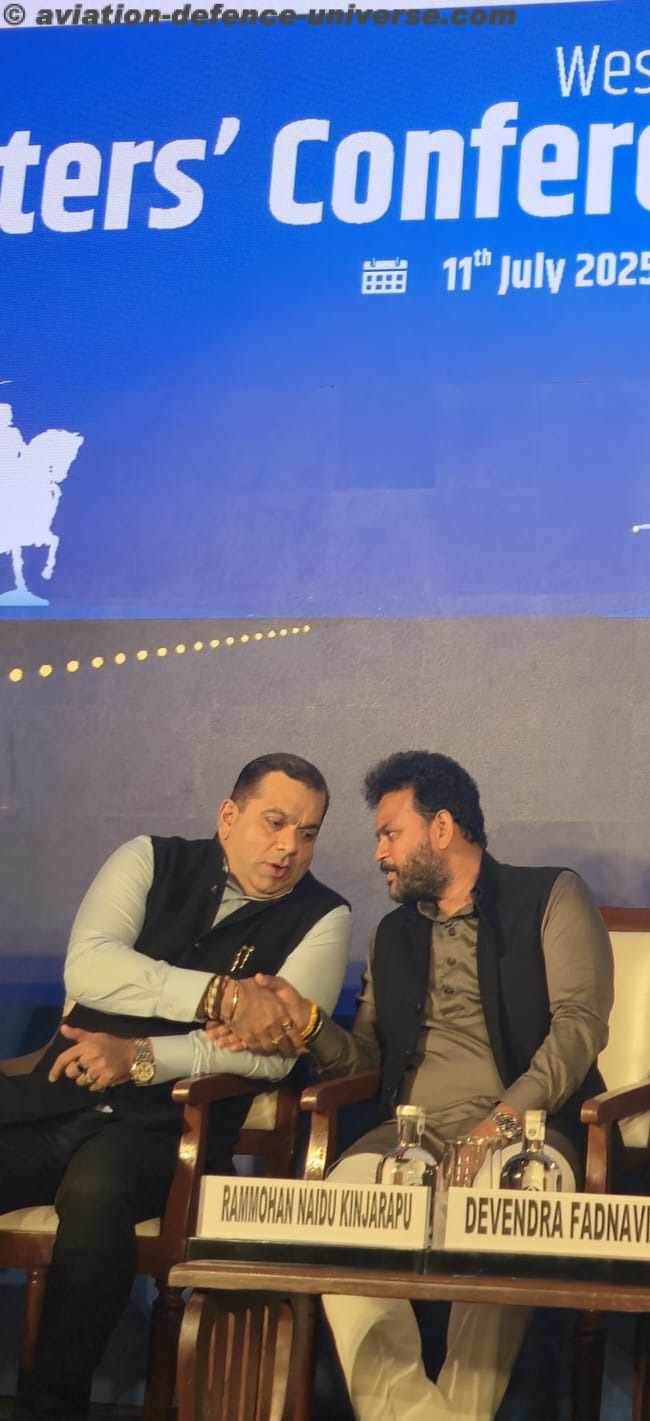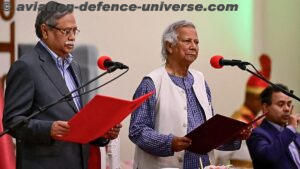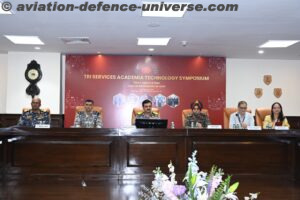- Honeymoon between China & Nepal on shaky grounds
By JK Verma
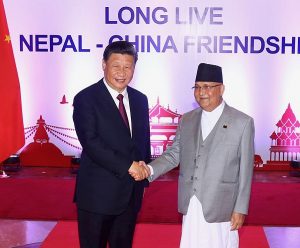
New Delhi. 16 October 2019. Both Chinese as well as Nepalese media projected that the Chinese President’s two days visit to Nepal which came after 23 years was a grand success. The previous visit was made by President Jiang Zemin in 1996. The analysts claim that Chinese President had not visited Nepal as China was waiting for a strong government in the Himalayan kingdom turned democracy. In last few decades there were repeated changes in the government and there was no political stability in the country.
The media and the foreign offices of both the countries highlighted that visiting Chinese President assured to invest $500 million in developmental and infrastructure projects in the next two years. Both the countries have also signed 20 agreements including 18 MoUs and two letters of exchange to augment the bilateral relations between both the countries. These agreements covered various sectors including agriculture, commerce, industry and transport.
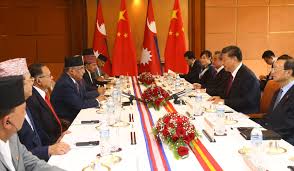
Xi Jinping reached Nepal on 12 October on a two-day state visit where he was received by President Bidya Devi Bhandari and Prime Minister KP Sharma Oli at the Kathmandu airport. Xi during his sojourn in Nepal met Nepalese President as well as the Prime Minister. Xi Jinping promised to improve the Arniko Highway which links Kathmandu with Tatopani transit point at Nepal-China border. The Tatopani transit point was closed for four years because of catastrophic earthquakes of 2015 and recurrent flooding of Bhotekoshi River. It is an important transit point as Nepal was importing goods worth Rs.20 billion and was exporting goods worth Rs.3 billion through Tatopaani check post. Nepal was earning revenue approximately of Rs.5 billion through the import and export from this post. Earlier China was disinclined to reopen the transit point due to security reasons although Nepal repeatedly requested to open Tatopani transit point.
Xi also promised that very soon a study would be conducted to assess the viability of trans-Himalayan railway and China will assist in the construction of Kerung-Kathmandu tunnel road. Chinese president also mentioned that there is no issue between China and Nepal and their friendship is a model friendship. Xi further mentioned that “We want to support Nepal in realising its dream to become a land-linked country from the landlocked country.” Xi also promised to help Nepal in education and in urban development areas. Nepalese president stated that Nepal adheres to “one-China policy” and nobody will be allowed to work against the interests of China from Nepalese soil. The Nepalese President gave a stern warning to Tibetans.
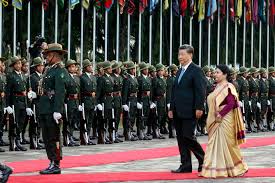
However, the analysts claim that all was not well during Chinese President’s visit to Nepal. First of all, the Himalayan Kingdom declined to sign the extradition treaty with China and in its place Mutual Legal Assistance in Criminal matters was inked. Nepal understood that China is insisting on extradition treaty as it would be used against Tibetans residing in Nepal. At present about 20,000 Tibetans live in Nepal. According to a rough estimate about 2,500 Tibetans illegally pass through Nepal every year and visit Dharamshala in India to pay respects to 84-year-old Dalai Lama. Nepal shares a long border with Tibet, and both have close relations. Nepal also feared that extradition treaty will infringe its sovereignty and will not be liked by India. Nepal also expected that a wide section of Nepalese have close relations with Tibet, and they will resist their deportation to China.
Nepal also avoided signing defence agreement and an accord on construction of border roads. China also wanted to allow Nepal access to more Chinese ports with special conditions, but Nepal had not signed those agreements too. Nepal has also refused to accept Chinese proposal of construction of National Defence University (NDU) similar to the National Defence College (NDC) of India. NDC is the topmost institution of strategic learning for officers of Indian Armed Forces and the Civil Services of India. Although Nepal cited the reason of refusal of Chinese assistance as local resentment, but analysts feel that Nepal is becoming apprehensive of Chinese assistance as both countries were negotiating about the establishment of NDU till few days before the visit of Xi Jinping. Nepal has also refused to accept Chinese assistance in construction of new Parliament building as Nepal and India are also negotiating on the construction of Parliament building. India and Nepal already signed extradition treaty in 1953 however India wants the revision of the treaty but both countries failed to revise the treaty due to differences.
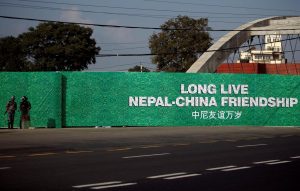
Nepal averted signing these accords as resentment is growing in Nepal against China. In recent past there were several anti-Chinese demonstrations, as Nepalese are realising that Chinese are exploiting them. Recently few cases of frauds committed by Chinese also came to limelight. Nepalese are also understanding that Chinese do not allow to float international tenders and all works have to be assigned to Chinese companies. These Chinese companies take contracts on higher rates and give loan on high interest rates. No employment is generated as Chinese companies bring all construction material from China and provide employment to Chinese people only.
Xi also assured that it will safeguard Nepal’s national independence, sovereignty and integrity. The statement indicates that China wants to swap India, but the Nepalese defence personnel appears to be more comfortable with India hence Nepalese had not given any positive response to Chinese offer.
Chinese president also met Nepali Congress leader Sher Bahadur Deuba and Nepal Communist Party co-chairman Pushpa Kamal Dahal Prachanda.
President Xi also gave a stern message that anyone who tries to “split” China will be “crushed”. The analysts claim that the warning is for Tibetans and to India as China always alleges that India is supporting Tibetans who are creating trouble in Tibet. China also gave a veiled message to India that China is a global power and India should review its relations with China. The warning was also to the protesters in Hongkong as well as the forces abetting protesters overtly or covertly.
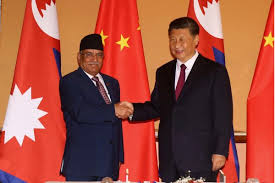
Pakistan which considers India as its enemy number one is whole heartedly supporting China. Prime Minister Imran Khan visited China just before Chinese President’s two-day visit to India and briefed him about Kashmir issue. China had also reversed its viewpoint about Kashmir during the visit of Imran Khan. China stopped making reference of UN Security Council resolution once Xi’s visit to India was announced but in the joint communique issued after the visit of Imran Khan again mentioned UNSC resolution over Kashmir. Although India raised a strong protest but not cancelled the informal summit.
On the other hand, Nepal takes help from China and wants to reduce its dependence on India but because of geographical compulsions India remains its biggest trading partner and Nepal remains dependent on India for many things. China which has deep pockets allure Nepal by promising heavy investments in developing infrastructure in Nepal.
China which considers India as its potential rival will continue encircling India and pricking it as and when required. China will also continue winning over India’s neighbour and as it has surplus funds it is investing in developing the infrastructure in the neighbouring countries. China is pressing Nepal for extending bigger collaboration in Belt and Road Initiative. China plans to connect Lhasa (Tibet) with Kathmandu and from Kathmandu to Lumbini near Indo-Nepal border. In this way China wants to press India to join BRI because without India joining BRI China is unable to achieve its object. At present China is much more powerful than India militarily as well as economically hence India should try to keep the dragon in good humour and make sincere efforts to strengthen itself.
(Jai Kumar Verma is a Delhi-based strategic analyst and a retired senior intelligence officer. He is also member of United Services Institute of India and Institute for Defence Studies and Analyses. The views in the article are solely the author’s. He can be contacted at editor.adu@gmail.com)











